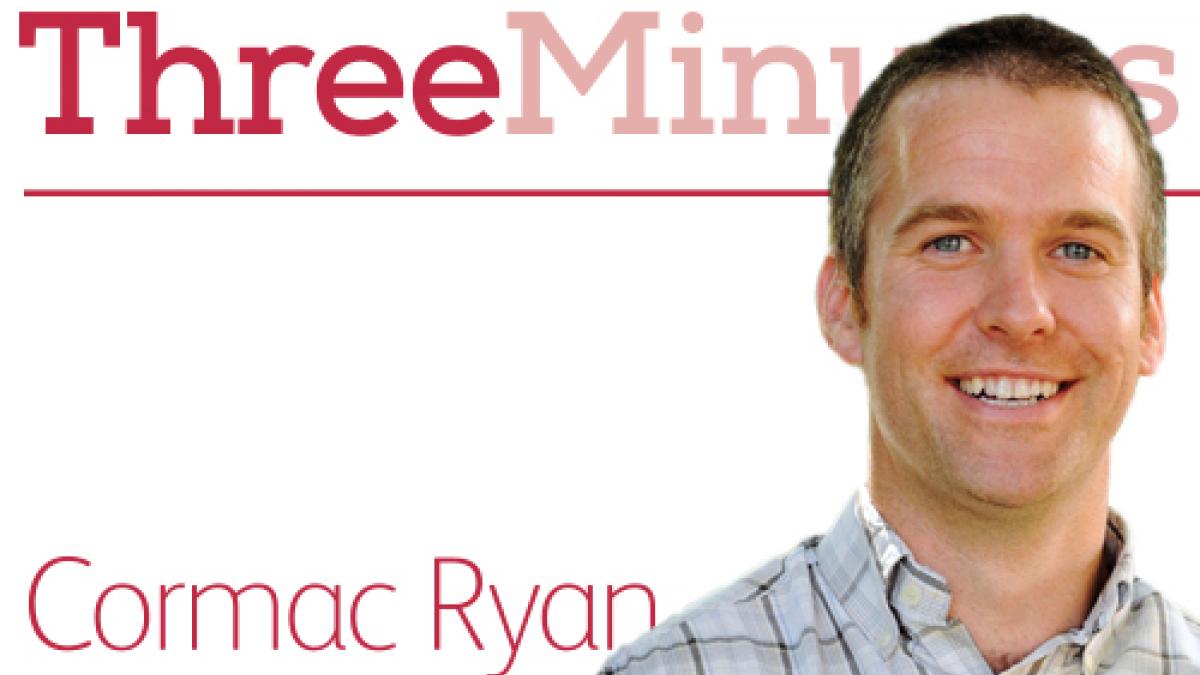Cormac Ryan from Teesside University is finding novel ways of helping physiotherapy students to empathise with older patients with pain.

Going with the Flo ...
Is pain in older people misunderstood?
I don’t know if it is misunderstood – but I think it is reasonable to say that the biological, psychological and social complexities of persistent pain in older people are not fully appreciated. Therefore, how we as healthcare professionals help older people manage their pain may not be optimal. For example, older adults with multi-site persistent pain are at increased risk of falling.
I wonder if the majority of physiotherapists working in a falls setting are aware of this modifiable falls risk factor. This broader issue is particularly pertinent considering that older people have been shown to under-report their pain to healthcare practitioners and healthcare professionals are less likely to offer pain management services to older people compared to younger people with an identical clinical presentation.
Is empathy an issue – and, if so, why?
One of the unique challenges with respect to pain in older people is related to the issue of empathy. Empathy is a crucial component to the patient-therapist relationship and is consistently linked to improved patient satisfaction and outcome.
Arguably, a young healthy physiotherapy student might find it difficult to understand how an older person with persistent pain is feeling. Worryingly, levels of empathy appear to decline in health and social care students as they move through their courses, according to previous studies. Therefore, there is a great need to enhance health and social care undergraduate training in the field of persistent pain in older people that is rooted not just in information and knowledge exchange but in the creation and development of empathy.
You are trying to remedy this?
At Teesside University Professor Denis Martin and I, funded by a grant from the Higher Education Academy, have set about addressing this challenge by developing a new social media based module called FLO’s story (Facebook Learning Object). The aim of the module is to develop health and social care students’ understanding of, and empathy with, older people with persistent pain.
The module presents the story of Flo (short for Florence), an older adult with persistent pain written by a professional playwright using real life stories. It covers a year in Flo’s life in which she regularly posts updates, photos and mini blogs. Within the Facebook platform she communicates with her friends, who are all older adults with persistent pain.
In the module students can follow, in an interactive way, the day-to-day life of an older person with persistent pain. The information used to inform the story and characters was obtained from the real life stories of older people with persistent pain. They were gathered as part of a Research Council project titled EOPIC – Engaging with Older People and their carers to develop Interventions for the self-management of Chronic pain http://eopic.dundee.ac.uk
And does it work?
In a small pilot study of physiotherapy students it was found their attitudes towards older people significantly improved after being exposed to FLO’s story. The improvement was on a par with that shown following a clinical placement. While we do not say this module could replace a clinical placement, we feel it demonstrates the potential impact that this module could have and its potential to be used on courses as a precursor to placement, or on courses where placements are not offered. Social media certainly poses an interesting opportunity to engage with students and feedback about the module was very positive.
The module is freely available if you log in to Facebook and visit http://bit.ly/2gSbTIt Log
A blueprint manual on building your own similar resource is available from Teesside University.
If you could make one thing happen in 2017, what would it be?
I would like to see enhanced pain education at undergraduate level not just in physiotherapy but across all health professions, greater integration of the International Association for the Study of Pain’s pain curriculum into undergraduate training http://bit.ly/2gjqmMN and an increased use of modules such as FLO’s story would be a positive step towards this. fl
Author
Cormac Ryan reader of physiotherapy at Teesside UniversityNumber of subscribers: 3




































